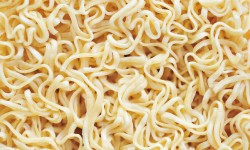Is too much milk bad for your health?

The media immediately jumped on a new study from Swedish researchers that examined whether high milk consumption is associated with higher rates of mortality and bone fractures. The researchers found that high milk intake was associated with higher mortality rates in men and women and higher bone fracture rates in women. At first glance, these findings seem to fly in the face of conventional wisdom, which has long held that milk consumption helps promote healthy bones. But if you’re a regular milk drinker, you might want to dig a little deeper than the headlines before you cut back on cow juice.
A few things to consider about the study and previous research on the health impact of milk:
- The study was observational, meaning it didn’t directly test the impact of various rates of milk consumption on fractures or mortality. The sample size was very large—more than 100,000 people in Sweden—but the findings were based on self-reported nutritional data from questionnaires, which can be an unreliable measure of dietary and lifestyle habits.
- While the study found high milk consumption was linked with higher rates of mortality and fractures, it found the opposite for consumption of cheese and fermented milk products (like yogurt). In particular, researchers found that women with a high intake of cheese or fermented milk products had lower mortality and fracture rates.
- Other studies have concluded the opposite about milk consumption and bone density—the Journal of the American College of Nutrition recently published a review of 11 studies and found that diets rich in dairy products can reduce the risk of osteoporosis, especially in women. Other research has shown that dairy foods provide nutrients “involved in the maintenance of bone health and the prevention of osteoporosis.”
There’s been a lot of conflicting research about how much milk or dairy we need and whether dairy is linked to negative health effects. Dairy remains a key part of the U.S. Food and Drug Administration’s food pyramid as it provides a number of essential nutrients, including calcium, vitamin D, potassium, phosphorus, and protein.
The Swedish researchers caution that more research is needed and their work is “not meant to draw casual conclusions.” Essentially, if you enjoy drinking milk, keep drinking it.





